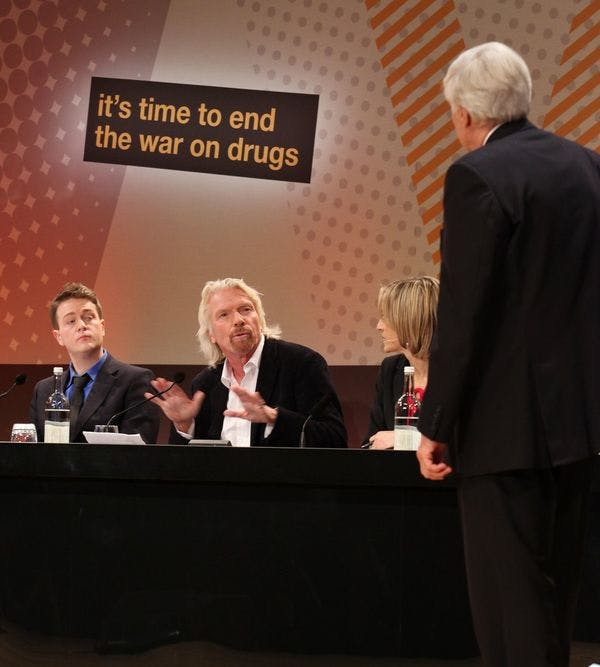Ending the war on drugs, the challenges and opportunities ahead
By Richard Branson
Last week’s Vienna meeting of the UN’s Commission on Narcotic Drugs was an important stepping stone on the road to 2016, when world leaders will come together in New York to discuss drug policy in a special session of the UN General Assembly, also known as the UNGASS.
As dry as these diplomatic gatherings appear, they play a key role in our effort to end the war on drugs; try new approaches to drug policy that reduce harm; end the criminalisation of drug users and keep non-violent drug offenders out of prison; and treat drugs overall as a health issue.
If all goes well, the UNGASS may set the stage for a first-ever, evidence-based review of those devastating policies that have caused so much unnecessary suffering.
Part of the struggle is that many countries shy away from any kind of reform effort, fearful of challenging the status quo and violating the international drug control conventions they signed many years ago. That’s why it is all the more remarkable that some national experiments have gone ahead, anyway. Portugal decriminalised all drug use in 2001, and made serious investment in health services for people who use drugs, with very positive outcomes, particularly when it comes to drug deaths and HIV or Hepatitis infections. Just last year, Uruguay decided to take matters into its own hands and introduced the regulated production and sale of cannabis. And in the US, four states now have legal cannabis markets, with more on the horizon.
Click here to read the full article.
Keep up-to-date with drug policy developments by subscribing to the IDPC Monthly Alert.
Topics
Regions
Related Profiles
- Global Commission on Drug Policy
